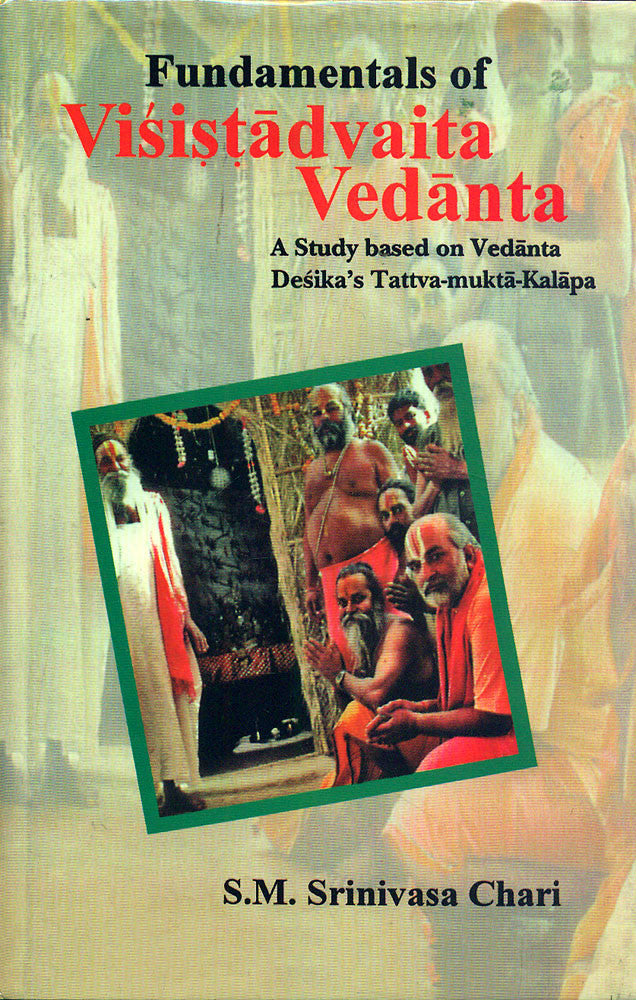Fundamentals of Visistadvaita Vedanta: A Study Based on Vedanta Desika's Tattva Mukta Kalapa
Fundamentals of Visistadvaita Vedanta: A Study Based on Vedanta Desika's Tattva Mukta Kalapa - Paperback is backordered and will ship as soon as it is back in stock.
Couldn't load pickup availability
The doctrine of Visistadvaita, expounded by Ramanuja, was developed into a sound system of philosophy by the most brilliant of his successors, Venkatanatha, 'popularly known as Vedanta Desika'. His chief contribution to the intellectual foundation of the system lay in the composition of the text of Tattva-mukta-kalapa, a treatise of significant philosophical import left for posterity.
In this volume, which is a study of Visistadvaita based on Tattva-mukta-kalapa, the line of arguments advanced by Vedanta Desika is closely followed. The major and important issues related to the philosophy of Visistadvaita--its basic ontological and epistemological approach, the concept of individual self, God and universe, the idea of sadhana and mukti, and the doctrine of substance and attribute--are all brought within the purview of discussion. The contemporary rival schools represented by Carvakas, Buddhists and Jainas, Nyaya-Vaisesikas, Mimamsakas and the Advaitins, of both orthodox and unorthodox camps, are successfully encountered. In the textual light of Tattva-mukta-kalapa, the notion that Visistadvaita is a theological system is dispelled, and its philosophic core is established beyond doubt.
The author maintains 'the original orthodox style, so characteristic of the ancient Acaryas', in his delineation of topics; yet the exposition remains free from all kinds of scholastic trappings.
The volume is a definitive study of Visistadvaita doctrines, both in their 'philosophical as well as theological aspects'. Its in-depth probe of 'the fundamental epistemological and philosophical issues...common to all schools' both in the East and the West makes its appeal to those interested 'in understanding the basic problems of philosophy'.
Review(s)
About the Author(s)
-
Pages
-
Edition
-
Size
-
Condition
-
Language
-
Weight (kg)
-
Publication Year
-
Country of Origin
-
Territorial Rights
-
Reading Age
-
HSN Code
-
Publisher




